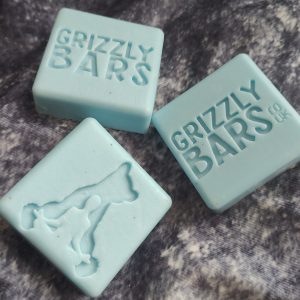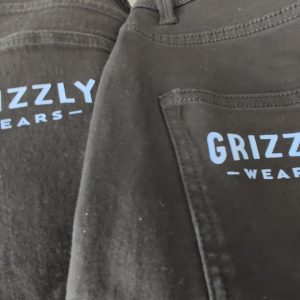Most Sustainable Materials for Clothing
In this Post, I will try to explain my view on the Most Sustainable Materials for Clothing.
My definition of sustainable clothing is not the simplest. When starting Grizzly Wears I thought this was a simple yes/no statement but could not have been more wrong. It seems for every positive there is a negative. This lead me to look at sustainability as a balanced scale, not a tick box.
Likewise, when Identifying potential new fabrics it is important to assess the good and bad impacts. Looking further across an entire range enables you to balance these impacts. For example cotton requires land to be grown on, recycled polyester does not. By using these fabrics to their best application it’s possible to counteract the bad and maximise the good. This is my theory anyway !
Lastly, it is difficult to fully assess where manufacturers are along this balanced scale. Good, internationally recognised certifications are a start. Sometimes words and phrases are used in a broad term and although partly true, can be stretched to fit. Despite having clearer labelling than ever, it is still not perfect. Let’s get on with it…
What makes a fabric sustainable ?
Firstly we will look at good properties. Lets start with positives and see where we go.
In order for a material to be sustainable it should come from a renewable source in strong supply. Materials which can be grown are good. These can be renewed and farmed to meet demand. Waste due to go to landfill is also a good source. Preventing more landfill waste is a great achievement. Coupled with closed loop production this is an ideal way to create sustainable materials. Infinite recycling.
Not wanting to go into too much into the details as I have covered this in other blogs (and it’s likely I will again). These are the key things that make materials sustainable from a certain point of view.
Social factors also play into making sustainable fabric. Looking at fair pay and treatment of workers is also important. This is where good accreditations for responsible sourcing comes into effect.
What makes materials unsustainable ?
This is the decisive part. The part to make you think more.
Often considered to be sustainable, farming on an industrial scale can be harmful. When clearing mile after mile of natural land to farm raw materials for fabric on a large scale, it is harmful to the environment. Animals lose their homes. The eco system is disrupted. Shifting towards recycled materials is how we can counteract the effects of large scale farming to some degree.
Materials produced from non-renewable sources such as oil are not sustainable. There is a limited supply of oil and it’s being used at far greater rate than can be replaced. However, the last thing we should do is discard everything made of plastic. Again this leads to recycling.



Why is sustainability important ?
I did believe “you can’t stop a force of nature” for a long time. Now I think with modern technology this is an achievement we should not have tested. Being in the UK we take our climate for granted. Furthermore we are protected by the gulf stream from most extreme weather. The gulf stream is now at its weakest state in recorded history. Losing the benefits we get from this could be catastrophic. I have read that we may only have 20 years of the gulf stream left and once the effects are lost they may never come back.
Everything we can do to reduce our impact during our time on this planet is important. The world can go on without humans, but not bees.
The Most Sustainable Materials for Clothing
Here are the ones I like in a list, in no particular order
- Cotton (Organic is better)
- Bamboo
- Recycled Polyester (Anything Recycled for that matter!)
- Hemp
- Linen (Flax)
- Wool
This is a summary and not a comprehensive list by a long way. Fantastic work is being done by dedicated people to create more innovative sustainable materials. A lot of these are utilising what we already have such as waste from industry or farming. This is the way.
Finally, If you loved this article, support Grizzly Wears in identifying the best materials for their applications. Buy Sustainable Clothing
-
 Grizzly Bars – Woodland Walk£6.00
Grizzly Bars – Woodland Walk£6.00 -
 Grizzly Bars – Recover£6.00
Grizzly Bars – Recover£6.00 -
 Grizzly Bars – Pirate£6.00
Grizzly Bars – Pirate£6.00 -
 Grizzly Bars – Old Sea Dog£6.00
Grizzly Bars – Old Sea Dog£6.00 -
 Grizzly Bars – Happy£6.00
Grizzly Bars – Happy£6.00 -
 Grizzly Bars – Energise£6.00
Grizzly Bars – Energise£6.00 -
 Grizzly Bars – Whisky£6.00
Grizzly Bars – Whisky£6.00 -
 Ocean Plastic & Bamboo Sunglasses£10.00
Ocean Plastic & Bamboo Sunglasses£10.00 -
 Every Day Jeans£45.00
Every Day Jeans£45.00









